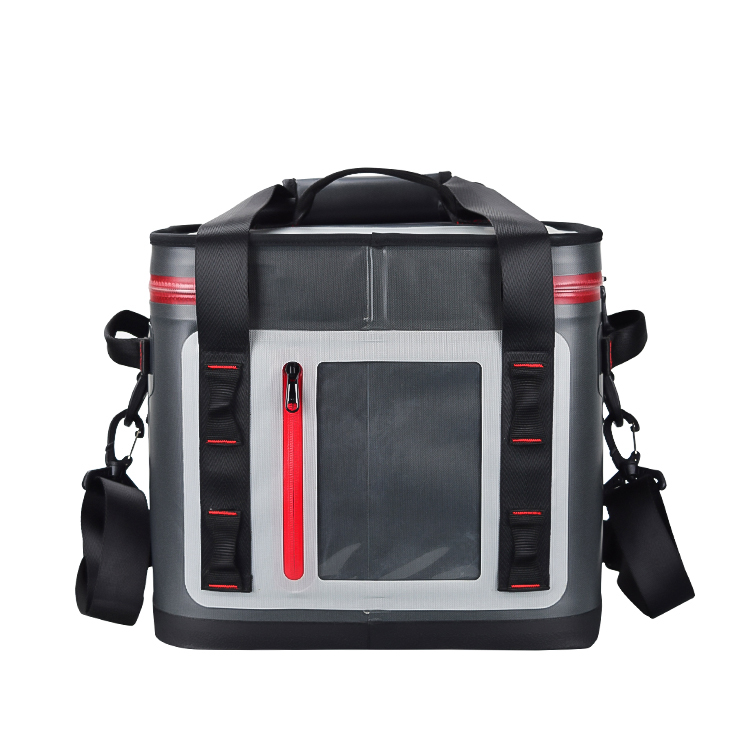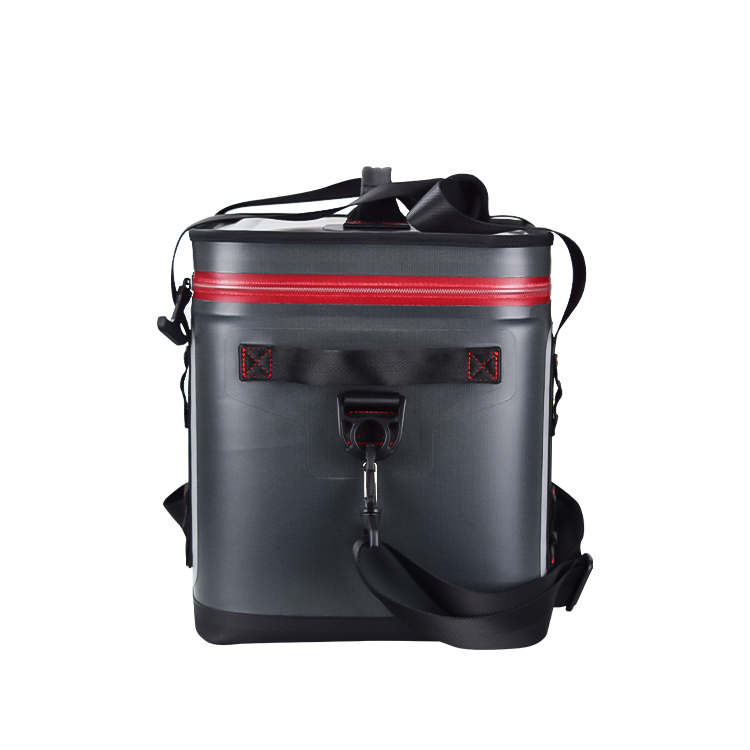In a world increasingly concerned with sustainability and environmental impact, the outdoor and travel gear industry is undergoing a significant transformation. Among the most sought-after products in this sector are soft coolers—versatile, portable, and now, more than ever, eco-friendly. FUJIAN SBS SIBO TECHNOLOGY CO., LTD, known as SIBO, stands at the forefront of this evolution, blending innovation, durability, and green technology to redefine what it means to keep things cool on the go.
Understanding the Soft Cooler Market
Soft coolers have become an essential accessory for adventurers, campers, and everyday users seeking convenience without the bulk of traditional hard coolers. Their lightweight construction, flexibility, and ease of storage make them an attractive option. However, as consumer awareness grows, so does the demand for products that minimize environmental harm. This shift has prompted companies like SIBO to explore eco-friendly materials and manufacturing processes, setting new benchmarks for the industry.
The Environmental Impact of Traditional Coolers
Historically, the production of soft coolers relied heavily on non-biodegradable plastics, synthetic foams, and energy-intensive processes. These materials, while effective at insulation, contribute to landfill waste and pollution. As the outdoor gear industry expands, the cumulative environmental impact of these products becomes increasingly significant. Recognizing this, SIBO has committed to reimagining soft cooler design with sustainability at its core.
SIBO’s Commitment to Sustainable Innovation
At SIBO, eco-friendly innovation is more than a marketing buzzword—it is a guiding principle. The company’s research and development teams are dedicated to sourcing and integrating recycled, renewable, and biodegradable materials into their soft coolers. This approach not only reduces the carbon footprint but also ensures that customers receive products that are both functional and responsible.
Key Features of SIBO’s Eco-Friendly Soft Coolers
- Recycled Fabrics: SIBO utilizes post-consumer recycled polyester and nylon, reducing reliance on virgin plastics and diverting waste from landfills.
- Biodegradable Insulation: Advanced insulation made from plant-based foams offers excellent thermal performance while breaking down naturally at the end of its lifecycle.
- Non-Toxic Coatings: Water-resistant coatings are derived from eco-safe compounds, ensuring no harmful chemicals leach into the environment.
- Durability and Longevity: By designing products to last, SIBO minimizes the frequency of replacement, further reducing environmental impact.
Industry Trends: The Rise of Sustainable Outdoor Gear
The push towards sustainability is not unique to SIBO; it reflects a broader trend within the outdoor industry. Brands are increasingly held accountable for their environmental practices, with consumers seeking transparency in sourcing, production, and end-of-life disposal. Certifications such as Bluesign, GRS (Global Recycled Standard), and OEKO-TEX are becoming standard requirements, signaling a new era of responsible manufacturing.
SIBO’s alignment with these standards positions the company as a leader, not just in soft cooler innovation, but in corporate responsibility. By investing in green technologies, SIBO is helping to shape industry norms and inspire competitors to follow suit.
Comparing Eco-Friendly Materials in Soft Coolers
Selecting the right materials is crucial for balancing performance with sustainability. Below is a comparison of commonly used eco-friendly materials in soft coolers:
| Material | Source | Environmental Benefit | Performance |
|---|---|---|---|
| Recycled Polyester (rPET) | Post-consumer PET bottles | Reduces plastic waste and energy use | High durability, water-resistant |
| Plant-Based Foam | Soy, corn, or bamboo | Biodegradable, renewable resource | Efficient insulation, lightweight |
| Natural Rubber | Rubber trees | Sustainable harvesting, compostable | Flexible, resilient |
| Organic Cotton | Certified organic farms | No synthetic pesticides or fertilizers | Soft, breathable, moderate durability |
Keyword Insights: “Eco-Friendly Soft Coolers” and “Sustainable Outdoor Gear”
The keywords eco-friendly soft coolers and sustainable outdoor gear are rapidly gaining traction in online searches, reflecting a growing consumer base that prioritizes environmental stewardship. SIBO’s product lineup is designed to meet these demands, offering a range of soft coolers that combine green materials with state-of-the-art insulation technologies.
By incorporating these keywords into product descriptions and marketing materials, SIBO ensures greater visibility among environmentally conscious consumers. Moreover, the company’s commitment to transparency—detailing the origin, composition, and recyclability of each product—reinforces its reputation as a trustworthy provider of sustainable outdoor gear.
Design Innovations for a Greener Future
SIBO’s approach to eco-friendly soft coolers extends beyond materials. The company invests in modular design principles, allowing for easy repair and replacement of parts. This not only prolongs product lifespan but also reduces waste. Additionally, SIBO’s manufacturing facilities are powered by renewable energy sources, further minimizing the environmental footprint.
- Modular Components: Zippers, straps, and liners can be replaced independently, reducing the need to discard the entire cooler.
- Efficient Packaging: SIBO uses recyclable, minimal packaging to cut down on shipping waste.
- Closed-Loop Recycling: Customers are encouraged to return end-of-life products for recycling, ensuring materials are reused whenever possible.
Industry Expansion: The Future of Sustainable Soft Coolers
The global market for soft coolers is projected to grow significantly in the coming years, driven by the popularity of outdoor recreation and the increasing importance of sustainability. As more brands enter the space, innovation will be key to differentiation. SIBO’s leadership in integrating eco-friendly practices sets a high standard for competitors, fostering a culture of continuous improvement across the industry.
Institutions and organizations are also playing a role, with government regulations and incentives promoting the use of recycled materials and reducing single-use plastics. This regulatory environment encourages collaboration between manufacturers, suppliers, and retailers to develop greener supply chains and offer consumers more sustainable choices.
How Consumers Can Make a Difference
While manufacturers like SIBO are driving change from the top down, consumers hold significant power in shaping the future of the industry. By choosing eco-friendly soft coolers and sustainable outdoor gear, individuals can reduce their environmental footprint and support companies dedicated to responsible production.
- Look for certifications and transparent sourcing information.
- Prioritize products made from recycled or renewable materials.
- Support brands that offer repair, recycling, or take-back programs.
- Educate others about the benefits of sustainable outdoor gear.
Conclusion: SIBO’s Vision for a Greener Tomorrow
FUJIAN SBS SIBO TECHNOLOGY CO., LTD (SIBO) exemplifies the potential of innovation and responsibility in the outdoor gear sector. Through their commitment to eco-friendly soft coolers and sustainable outdoor gear, SIBO is not only meeting the needs of today’s consumers but also helping to preserve the planet for future generations. As the industry continues to evolve, SIBO’s leadership serves as a beacon for other companies aspiring to make a positive impact.
For outdoor enthusiasts, retailers, and industry partners, the message is clear: sustainability and performance can go hand in hand. By supporting companies like SIBO and making informed purchasing decisions, everyone can play a part in building a more sustainable future—one cooler at a time.
Tags:waterproof bag,water bladder
Post time: Jun-09-2025



